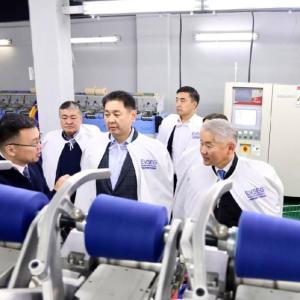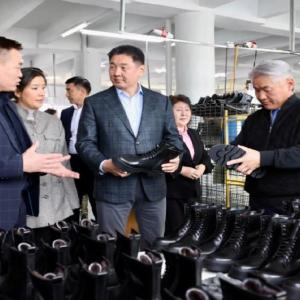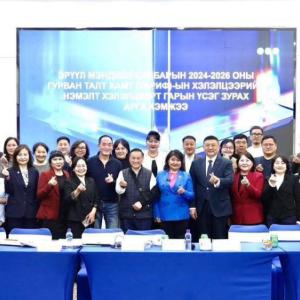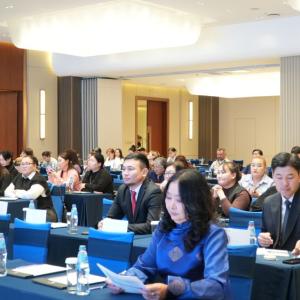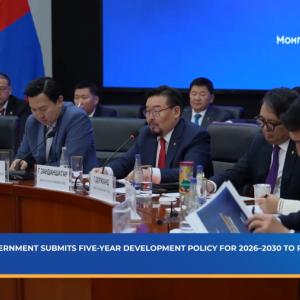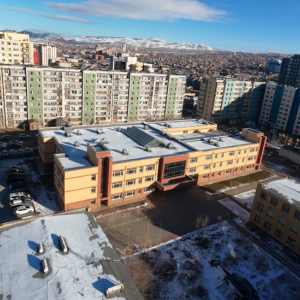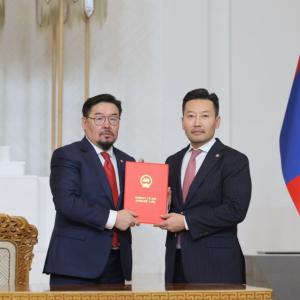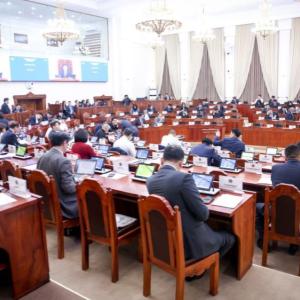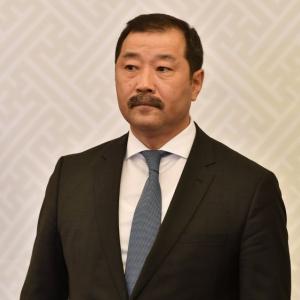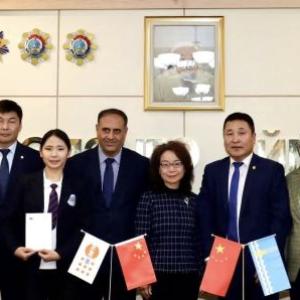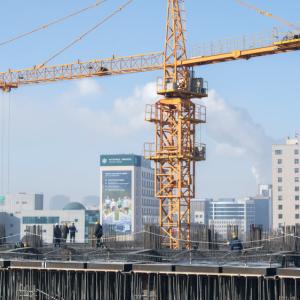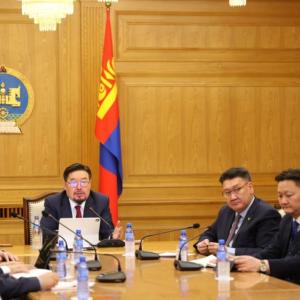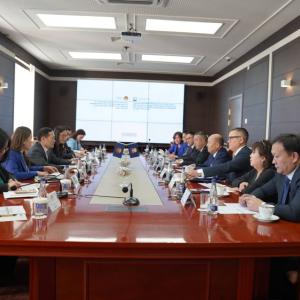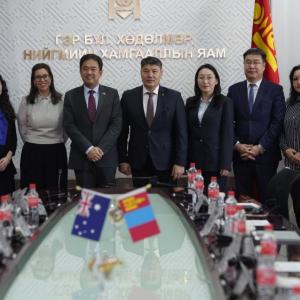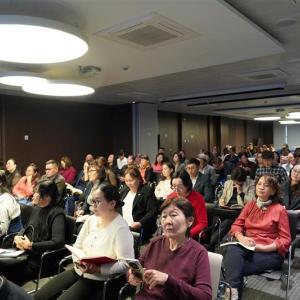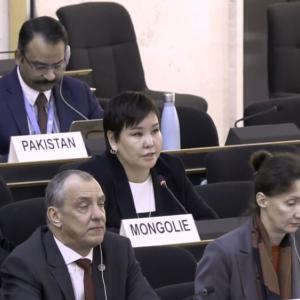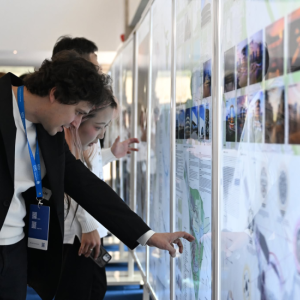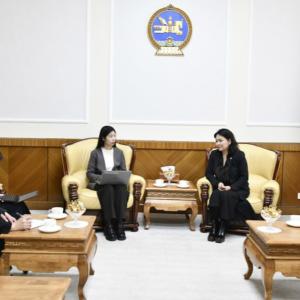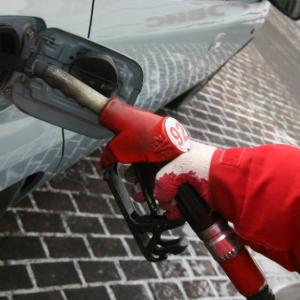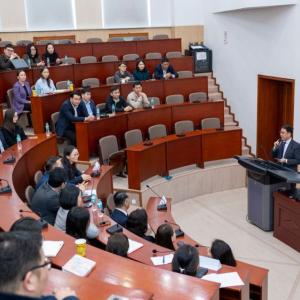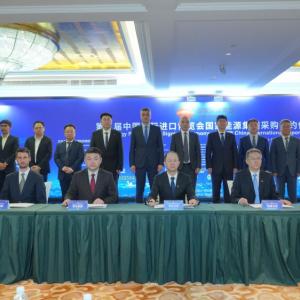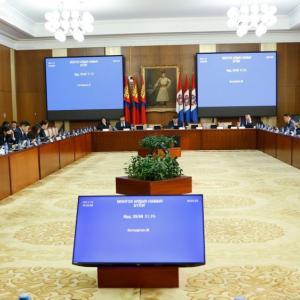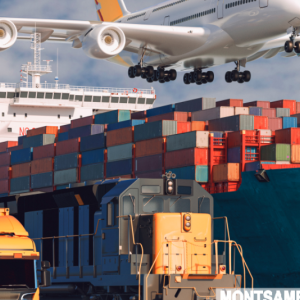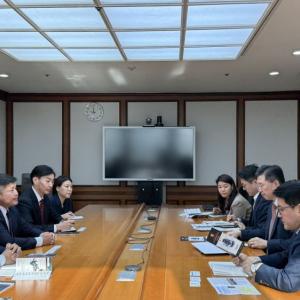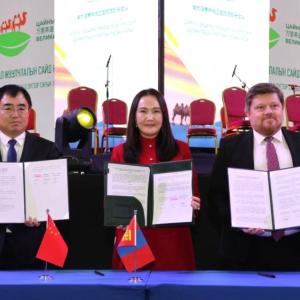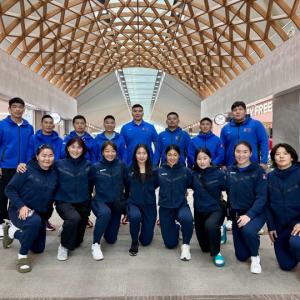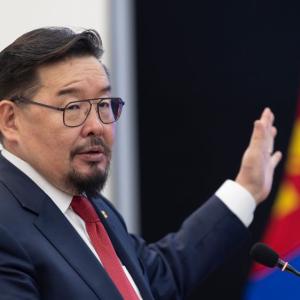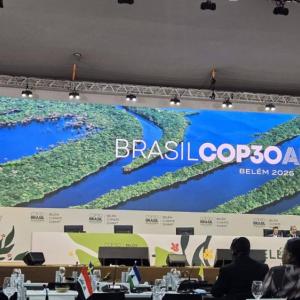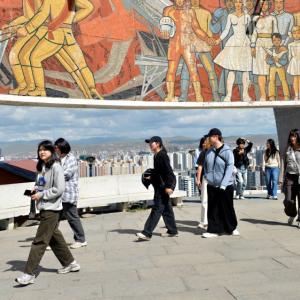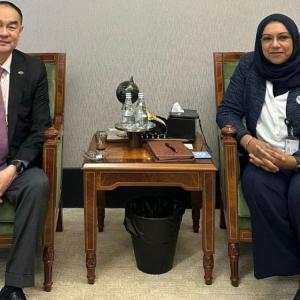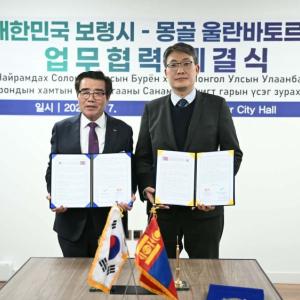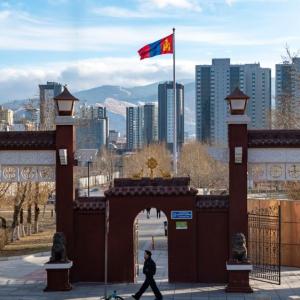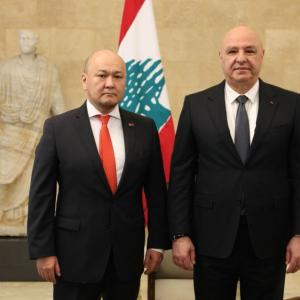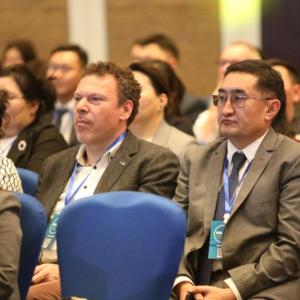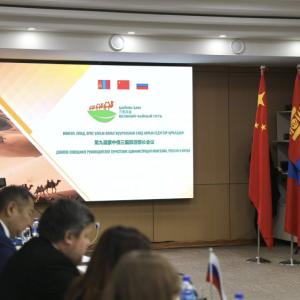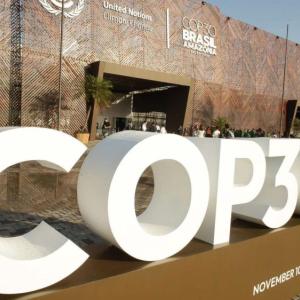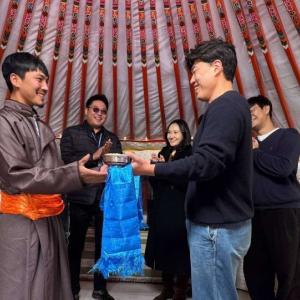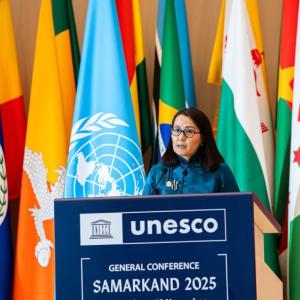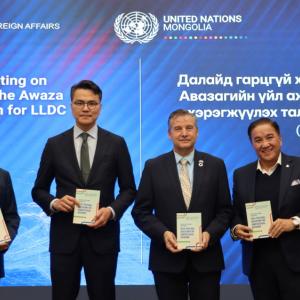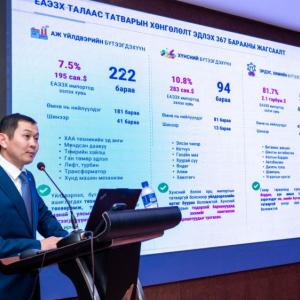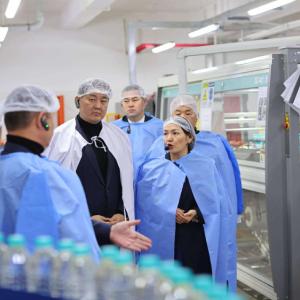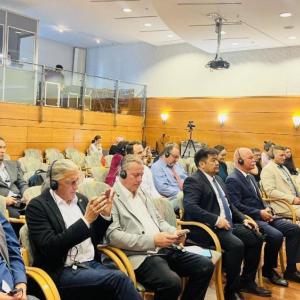Ninth Asia-Europe Parliamentary Partnership Meeting issues declaration
PoliticsUlaanbaatar /MONTSAME/ This declaration was adopted by participants of the 9th Asia-Europe Parliamentary Partnership Meeting held April 21-22 in Ulaanbaatar.
It was published on Wednesday on the Mongolian parliament’s website.
1. The Ninth Asia-Europe Parliamentary Partnership Meeting /ASEP 9/ was held on 21- 22 April 2016 in Ulaanbaatar, Mongolia, under the theme “The role of Asia-Europe Parliamentary Partnership in ASEM”. The Meeting was opened and chaired by Mr. Zandaakhuugiin Enkhbold, Chairman of the State Great Khural of Mongolia.
2. The Meeting was attended by Parliamentarians from the following ASEM partners: Australia, Austria, Belgium, Bulgaria, Cambodia, China, Croatia, Cyprus, Denmark, Finland, France, Hungary, India, Indonesia, Italy, Japan, Kazakhstan, ROK, Lao PDR, Mongolia, Norway, Pakistan, the Philippines, Poland, Russian Federation, Singapore, Spain, Sweden, Switzerland, Thailand, United Kingdom and Vietnam as well as the European Parliament. The Asia-Europe Foundation (ASEF) participated in the Meeting as a guest of the Host Parliament.
3. The Meeting was addressed by the previous host of the Asia-Europe Parliamentary Partnership Meeting - Mr. Pietro Grasso, President of the Italian Senate.
4. During the Meeting, panels were held on the following topics: “Connectivity and Effective Multilateralism” and “Partnership for the Future”.
5. ASEP Parliamentarians extended their warm congratulations to ASEM on the occasion of its 20th Anniversary and highlighted in this context the achievements of the ASEM process along of the three pillars of its activities. They emphasized the importance of this inter-regional process in promoting political dialogue between Asian and European partners on a wide range of regional and global issues of common interest and concern, in strengthening their economic and trade ties and in bringing closer the people of the two continents through expanding cooperation in social, cultural, educational and other fields, and forging people-to-people contacts within the ASEM process.
PARTNERSHIP FOR THE FUTURE
6. ASEP Parliamentarians reaffirmed their commitment to continue their efforts aimed at providing strong support to ASEM in further strengthening the partnership between the two regions on the basis of universally acknowledged principles of equality, mutual respect as well as promotion and protection of human rights and fundamental freedoms. They pledged to take appropriate measures to enhance the parliamentary dimension of the ASEM process, forge stronger links between ASEM and ASEP and further increase the role of Parliaments in translating into reality the common goals and interests of the Asian and European nations.
7. ASEP Parliamentarians expressed their confidence that the 20th Anniversary of the ASEM process and of ASEP, which has proved to be its integral part, will provide an opportunity to give a new momentum and add substance to the comprehensive partnership and multi-faceted cooperation between the peoples, business community, parliaments and governments of the Asian and European countries.
8. ASEP Parliamentarians acknowledged the need for more coordination among ASEM partners, ASEP and other stakeholders in the ASEM process on cross sectorial issues and urged the ASEM Senior Officials to consider Mongolia’s proposal to set up an ASEM Center including a virtual/online facility.
9. ASEP Parliamentarians stressed the importance of further improving the visibility and relevance of ASEM through greater outreach to the public in ASEM partners, including appropriate parliamentary tools for debate and information. In this connection, they commended the unique role of ASEF as a bridge between civil societies and people in Asia and Europe along the three pillars of ASEM. They also expressed support for the annual commemoration of an ASEM Day on 1 March in partner countries as a public awareness-raising event conducive to its higher visibility goal.
10.ASEP Parliamentarians expressed their wish to study the possibility of reviewing the ASEP rules to ensure appropriate continuity in the work of ASEP aimed at following up the multiple ASEM ministerial meetings and other activities held between Summits.
11.ASEP Parliamentarians welcomed the activities to be undertaken within the ASEM process in 2016-2018 that would further facilitate the multi-faceted cooperation between the two regions.
12.ASEP Parliamentarians strongly condemned all forms and manifestations of terrorism that poses a serious threat to world peace and stability. They expressed their grave concern over the increasing number of terrorist acts in different parts of the world and in this context underlined the important role of Parliaments in fighting terrorism through enactment of appropriate legislation, oversight of its implementation and allocation of requisite financial resources. They called for strict implementation by the international community of all provisions of UN Security Council resolutions 2170, 2178, 2199 and 2253. They stressed the need for preventing, detecting, investigating and prosecuting terrorism financing as well as addressing the conditions conducive to terrorism and radicalization. They underlined the need for broader international cooperation in combating terrorism on the basis of the UN Charter and principles of international law. Terrorism and its financing cannot be associated with any religion, race, nationality, civilization or ethnic group.
13.ASEP Parliamentarians welcomed the ongoing efforts undertaken by the international community to address the pressing problems related to regional hotbeds of tension and underlined the need to cease violence and hostilities, seek peaceful ways of settling conflicts through dialogue and negotiations, with full respect for the principles of state sovereignty, territorial integrity and noninterference in internal affairs, and to refrain from any moves that would further aggravate the situation, including inciting national, racial, religious or ethnic discords or intolerance.
14.ASEP Parliamentarians condemned in the strongest terms the DPRK’s nuclear test on 6 January 2016 and its launch that used ballistic missile technology on 7 February 2016, as well as human rights abuses including abduction, which constitute a grave violation of the relevant UN Security Council resolutions and threaten peace and stability in Northeast Asia and beyond. They urged the DPRK to abide by the relevant UNSC resolutions and abandon all nuclear programs as well as ballistic missile programs in a complete, verifiable and irreversible manner. They also stressed the imperative need for the reduction of tensions caused by the DPRK’s recent provocative acts, as well as resumption of the meaningful Six Party Talks and denuclearization of the Korean Peninsula.
15.Parliamentarians stressed the importance of initiatives aimed at promoting greater understanding, confidence-building and cooperation among the states and other stakeholders of the region, such as the Northeast Asia Peace and Cooperation Initiative /NAPCI/ launched by the Republic of Korea, Russia and China’s initiatives on peace, security and cooperation in Northeast Asia presented within the framework of the Six Party Talks, and the Ulaanbaatar Dialogue on Northeast Asia Security /UBD/ launched by Mongolia.
16.ASEP Parliamentarians underscored the leading role of the United Nations in maintaining international peace and security, and the central role played by the Treaty on the Non-Proliferation of Nuclear Weapons, the Chemical Weapons Convention and the Biological Weapons Convention in promoting disarmament and non-proliferation of weapons of mass destruction, and ensuring a comprehensive ban of nuclear tests. They reiterated the need for enhancing multilateralism and international cooperation in order to effectively address the current and emerging global challenges in accordance with the norms and principles of international law.
17.ASEP Parliamentarians highly appreciated the efforts made by all the negotiating Parties (EU3+3) on the final agreement of the Joint Comprehensive Plan of Action (JCPOA) on the Iranian nuclear issues, and welcomed this agreement as a contribution that leads to the stability of the Middle East region and strengthens the international non-proliferation regime.
18.ASEP Parliamentarians reaffirmed their commitment to maintaining peace and maritime security, stability, safety and cooperation, and freedom of navigation at sea and overflight, abstaining from unilateral actions which can raise tensions as well as resolving maritime disputes peacefully in full compliance with the UN Charter and universally recognized principles of international law, including the 1982 United Nations Convention on the Law of the Sea (UNCLOS).
19.ASEP Parliamentarians noted the unprecedented flow of refugees and migrants and expressed their concern over the subsequent unfolding of the humanitarian crisis on Europe’s borders and in transit countries. They underlined the urgency of addressing the root causes of forced displacement of people and of migration through an integrated approach encompassing political, security and socio-economic aspects of the issue, ensuring protection and humanitarian assistance and finding sustainable and long term solutions to the problem. They stressed the importance of creating conditions conducive to greater harmony, tolerance and mutual respect in the countries of transit and destination, in view of promoting the basic human rights of all people on the move, especially the most vulnerable ones, such as women and unaccompanied children.
20.Parliamentarians encouraged respect for human rights and fundamental freedoms as an essential factor of strengthening just, equitable, democratic and inclusive societies in Asian and European countries and stressed the need to seek common ground through dialogue, cooperation and partnership as well as full enforcement of the rule of law and the fight against corruption.
21.ASEP Parliamentarians welcomed the results of the Parliamentary elections in Myanmar held last year which opens up the possibility for the people of Myanmar to advance along the road for further democratic reforms.
CONNECTIVITY AND EFFECTIVE MULTILATERALISM
22.ASEP Parliamentarians recognized the importance of mainstreaming connectivity into all relevant ASEM cooperation frameworks and agreed that greater connectivity between the peoples, parliaments and governments of Asian and European countries through development and improvement of trans-regional transport routes, corridors and networks, and promotion of exchange programs will contribute towards increase of free flows of goods, services, capital and people leading to better understanding and closer relationship between the two regions.
23.ASEP Parliamentarians noted that the financial uncertainties and the unstable and volatile state of the world economy that continue to hamper economic growth and aggravate poverty, unemployment, social inequalities and development gaps in the countries of Asia and Europe, highlight the importance of sound national policies and appropriate strategies as well as of enhanced international cooperation for increasing favorable and equal opportunities for trade, economic growth and sustainable development.
24.ASEP Parliamentarians noted with concern the ongoing imbalance and disparity among and within the Asian and European regions resulting from the challenges of globalization. They further emphasized the need to formulate effective policies in ensuring inclusive growth and sustainable development which cover a wide range of subjects including socio-economic and political issues, as well as transfer of knowledge and technology between the two regions.
25.ASEP Parliamentarians underscored the importance of the 2030 Agenda for Sustainable Development adopted by the United Nations General Assembly in 2015 for building a prosperous future for all people of the world based on the principles of inclusiveness, gender equality and sustainability. They called on the ASEM partners to take appropriate measures at the national, regional and international levels and to promote international cooperation with a view to supporting and ensuring effective implementation of the 2030 Agenda for Sustainable Development. They underlined the importance of building dynamic, sustainable, innovative and people-centred economies, as well as promoting decent work for all including youth employment and women’s economic empowerment.
26.In line with the goals set in the 2030 Agenda for Sustainable Development, ASEP Parliamentarians reiterated the need to build peaceful, just and inclusive societies on the basis of transparent, effective and accountable institutions, including legislative bodies at all levels. Therefore, ASEP Parliamentarians emphasized the vital role of national parliaments in implementing the 2030 Agenda with a view to adopting relevant legislations, allocating budgetary resources and ensuring government accountability. They acknowledged the importance of dialogue and cooperation among ASEP Parliaments which are well supported by the exchange of best practices on parliamentary procedures, functions and administrative set-up in the form of capacity-building.
27.ASEP Parliamentarians believed that multilateral partnership is crucial in addressing the climate change challenge and its deep impact on extreme weather changes, people’s livelihoods, well-being and surrounding ecosystems.
28.ASEP Parliamentarians welcomed the successful completion of the 21st Conference of the Parties to the United Nations Framework Convention on Climate Change (COP21) and the adoption of the Paris Agreement. Under this legally-binding Agreement, Parties agreed to undertake the intended nationally determined contributions to reduce greenhouse gas emissions, to hold the increase in the global average temperature to well below 2°C and to pursue efforts to limit the temperature increase to 1.5°C above pre-industrial level. Parliamentarians also agreed that the Paris Agreement lays down the foundation for addressing the issues related to mitigation and adaptation to climate change, financing, technology transfer, capacity building, transparency of action and support.
29.Parliamentarians, recognizing the complementarity of the Paris Agreement and the 2030 Agenda for Sustainable Development, considered it vital to unite the efforts of Asian and European countries in implementing the goals set in these two landmark documents with a view to bringing about sustained growth and prosperity to all people of the world. They stressed the increasing need for ASEM partners to expand their development cooperation.
30.ASEP Parliamentarians underlined the importance of wider use of environmentally friendly alternative sources of energy based on every country’s energy mix. They reaffirmed their support for strengthening global and regional cooperation in the field of nuclear safety, including through the annual ASEM Seminar for Nuclear Safety, and for upholding strong commitment to the international safety requirements in line with the IAEA standards in order to ensure the safe operation of nuclear facilities around the world.
31.ASEP Parliamentarians welcomed the Sendai Declaration and the Sendai Framework for Disaster Risk Reduction 2015-2030 adopted at the 2015 Third UN World Conference on Disaster Risk Reduction and encouraged further development of cooperation among ASEM partners on disaster risk reduction and management. They underlined the significance of strengthening the resilience through sharing knowledge and promoting cooperation on a broad and people-centred approach to disaster prevention, disaster mitigation, preparedness, relief, recovery and rehabilitation, including through awareness programs, early warning systems, search, rescue and relief operations, capacity-building and the promotion of innovation and technology.
32.ASEP Parliamentarians noted with appreciation the ongoing regional and sub-regional cooperation and national initiatives by ASEM partners to connect the two regions. They expressed appreciation for the ASEAN’s role in promoting dialogue, confidence-building and cooperation for peace, security, stability and prosperity in the Asia-Pacific and beyond, and welcomed the formal establishment of the ASEAN Community on 31 December 2015 as significant step towards greater regional integration.
They further welcomed the establishment of the Asian Infrastructure Investment Bank in 2015 as a significant step towards greater regional integration and increased connectivity, and noted the need for coordination with the Asian Development Bank (ADB), the European Bank for Reconstruction and Development (EBRD) and other multilateral development banks.
33.ASEP Parliamentarians reaffirmed their commitment to enhance inter-regional trade and investment flows and to resist trade-distorting or protectionist measures, including restrictions and non-tariff barriers in order to achieve competitive, efficient and seamless movement of goods in the two regions.
34.Parliamentarians reiterated their view that stronger trade and investment relations between the two regions through the enhancement of the ASEM Trade Facilitation Action Plan and the ASEM Investment Promotion Action Plan would contribute to deepening economic integration and connectivity between Asia and Europe.
35.ASEP Parliamentarians stressed the importance of the universal, rules-based, open, non-discriminatory, inclusive and equitable multilateral trading system for sustainable economic growth and in this context noted the key role of the WTO in administering the global trading system, enhancing the rule of law, monitoring trade policies and settling trade disputes. They welcomed the positive outcome of the Tenth WTO Ministerial Conference held in Nairobi in 2015 which made notable progress in respect to the Special Safeguard Mechanism for Developing Country Members, Public Stockholding for Food Security Purposes, Export Competition, Cotton, Preferential Rules of Origin for Least Developed Countries, and Implementation of Preferential Treatment Services for Least Developed Countries. They reaffirmed the need to continue efforts towards conclusion of the remaining Doha issues and achievement of an early entry into force of the Trade Facilitation Agreement.
36.ASEP Parliamentarians reaffirmed the need for greater involvement of the private sector, including small and medium-sized enterprises (SMEs) and for enhancement of public-private partnership, promotion of Start-up initiatives in strengthening economic, trade and investment links between Asia and Europe and implementing joint projects. They also agreed to enhance cooperation with the Asia-Europe Business Forum.
37.ASEP Parliamentarians also highlighted the importance of new information and communications technology in promoting digital connectivity between the two regions. They encouraged the ASEM partners to foster their collaboration in the area of capacity-building and exchange of expertise in ensuring cyber security and development of information and communications technology.
38.ASEP Parliamentarians underlined the significance of building common knowledge and increasing connectivity between the two regions in relation to the ASEM activities aimed at fostering people-to-people links, intensifying cultural, educational, scientific, technological, academic and youth exchanges, and promoting mutually beneficial technology transfers.
39.ASEP Parliamentarians underlined the importance of addressing framework conditions for research and innovation collaboration, in particular intellectual property and its protection in fostering innovation, growth and employment, as well as the need to strengthen the on-going cooperation on intellectual property rights issues in all relevant areas.
40.ASEP Parliamentarians recognized the value of cultural diversity within the ASEM as a big asset and stressed the need to raise awareness and understanding of the benefits of cultural diversity through public information and educational programs.
41.While commending the work of ASEF in bringing closer the peoples of Asia and Europe through programmes and projects in the areas of culture, economy, education, governance, public health and sustainable development that complement the government-led ASEM process, ASEP Parliamentarians encouraged ASEF to continue playing a tangible role in advancing the ASEM process through organizing various activities in line with the ASEM priorities for the benefit of the peoples of Asia and Europe.
42.ASEP Parliamentarians underlined the pivotal role of civil society, business, professional and academic institutions, as well as women’s and youth organizations in promoting greater connectivity, awareness and understanding among the peoples of Asia and Europe, revitalizing the ASEM process and enhancing its visibility and relevance.
FINAL CLAUSES
43.Realizing the importance of mainstreaming the input of various stakeholders into the official ASEM process, the Parliamentarians tasked the Chair of the Meeting to report the outcome of the ASEP 9 to the ASEM leaders during the 11th ASEM Summit of Heads of State and Government (ASEM11) in Ulaanbaatar in July 2016.
44.ASEP Parliamentarians thanked the State Great Khural of Mongolia for its warm hospitality and expressed their sincere appreciation for the excellent organization of the ASEP 9 in Ulaanbaatar, and welcomed the possibility to meet in Europe in 2018.
 Ulaanbaatar
Ulaanbaatar





